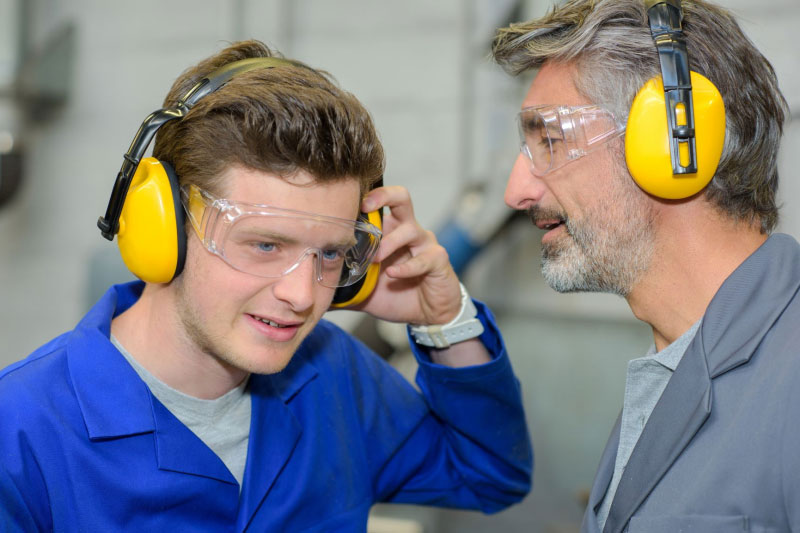Ahead of Noise Action Week (24-29 May), Bureau Veritas is urging manufacturing companies to review its noise control procedures to ensure they are fully compliant to Control of Noise at Work Regulations 2005 (CoNAWR).
According to the Health and Safety Executive (HSE)1, the level at which employers must assess the risk to workers’ health and provide them with information and training is now 80 decibels (dB), and they must provide hearing protection when noise levels reach 85 dB. There is also an exposure limit value of 87 dB, taking account of any reduction in exposure provided by hearing protection, above which workers must not be exposed.
A requirement of CoNAWR is that wherever possible, noise should be eliminated or if not possible, reduced to ‘as low as reasonably practicable’. The responsibility is first on the business to achieve this by putting procedures in place to reduce noise, with personal protective equipment, such as earplugs and ear defenders, a secondary measure only.
Richard Cope – Technical Director (Acoustics and Vibration), said: “Noise Action Week draws attention to the issue of noise pollution and its effects on people. The HSE has strict guidelines in place for businesses, to ensure employees are only subject to a level of noise which isn’t damaging to their health. Noise and vibration within the working environment can affect the health of individuals, such as causing medical problems and even reducing productivity if noise is not appropriately assessed and treated.
“As well as workplace noise, manufacturing firms must also consider noise and/or vibration that could affect the local areas where they are operating. In the event a new manufacturing plant is built, or new equipment is brough in, firms should also undertake a noise assessment as part of license permit or planning applications.
“As the UK begins to return to some form of normality and public areas become busy once again, mitigating the effects of noise and vibration on people and structures has become all the more important. Consideration of these issues must be given when introducing a new source of noise or vibration.”
Noise Awareness Week, pioneered by Environmental Protection UK, is an annual initiative which aims to tackle the issues of unhealthy noise, and the effects this can have on personal wellbeing and mental health.
Richard adds: “It’s imperative that employers are vigilant and stay on top of health and safety obligations, ensuring that an appropriate and adequate strategy is in place, which in-turn will protect employees and help achieve long-term compliance.
“Understandably, it can be overwhelming for companies to manage this process, especially when new sources of noise are introduced, whilst still managing day to day processes. As a global leader in testing, inspection and certification, Bureau Veritas has the knowledge and experience to help companies reduce risk and build a responsible, safe and sustainable business.”
Bureau Veritas has a specialist Acoustics and Vibration team which offers a full scale of consultative services to a wide range of clients across varied industry sectors; with the common goal of achieving compliance with legislation and best practice. Risk assessments are carried out in accordance with CoNAWR and provide suitable recommendations and advice as to how to reduce noise levels in the workplace to as low as reasonably practicable, identify at risk personnel, and advise on the best methods to remove or minimise that risk.



